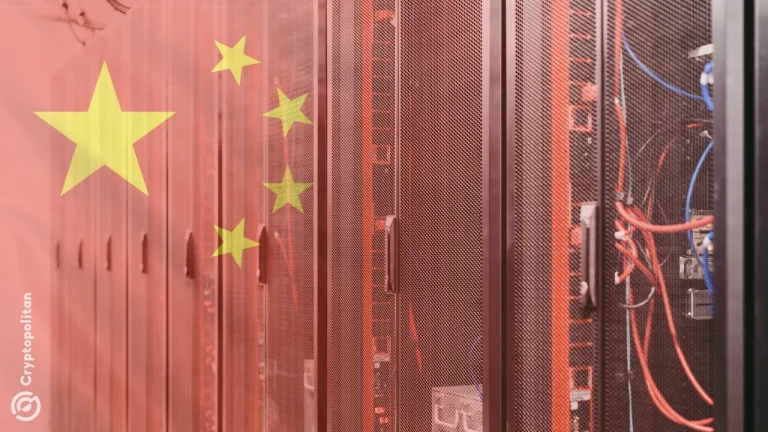Key Takeaways
- China is implementing a strategy to reduce electricity costs for large data centers that utilize domestically produced AI chips.
- This initiative aims to bolster local AI chip development, reduce reliance on U.S. technology, and promote companies like Huawei and Cambricon.
- Major tech firms, including Tencent, Alibaba, and ByteDance, are adapting their operations to comply with the new policy, expanding their AI and cloud projects.
- While Chinese AI chips are still improving, this policy is expected to accelerate their development and adoption within China.
China’s Strategic Subsidies for Domestic AI Chip Adoption
China is actively reducing power expenses for substantial data centers operated by key technology firms such as ByteDance, Alibaba, and Tencent. This strategic move is designed to champion the production of local AI chips, thereby diminishing the nation’s dependency on advanced technology from the United States.
Local governmental bodies in select Chinese provinces are now extending more significant subsidies. These incentives can slash electricity bills for data centers by as much as half, provided they are using Chinese-manufactured AI chips from companies like Huawei and Cambricon. Officials indicate this plan will help offset the increased energy demands and costs associated with utilizing these domestic components, particularly following Beijing’s restrictions on Nvidia’s AI chips.
Incentivizing Local Technology for Enhanced AI Capabilities
Many organizations operating data centers and cloud infrastructure within China are finding themselves compelled to adopt local AI chips. A significant challenge with these domestic chips is their higher energy and cooling requirements compared to their international counterparts.
Consequently, operational costs have risen over the past year. In response, the Chinese government has introduced substantial subsidies. Some of these subsidies are exceptionally generous, reportedly covering nearly a full year’s electricity expenses, empowering companies to reinvest savings into AI research and expand their cloud operations.
Currently, Huawei and Cambricon are the principal providers of these domestic AI chips. Although their products may not yet match the sophistication and performance of leading Nvidia models like the H100 or H20, the Chinese government is firmly convinced that the most effective path to advancing these chips lies in accelerating their widespread adoption across the country.
Extensive deployment of these chips will enable developers to gather crucial performance data, refine their designs, and acquire the experience necessary to bridge the technological gap with international competitors. China has previously employed a similar strategy successfully in the solar, telecommunications, and electric vehicle industries, sectors where it now holds a leading global position. The nation is aiming to replicate this success with AI chips, recognizing their critical importance for its future economic stability and national security.
Analysts suggest that this new policy will likely boost investor confidence in domestic AI chip manufacturers and attract additional financial backing to expedite performance improvements.
Tech Giants Refocus on AI and Cloud with New Energy Policies
As China begins to reward companies that integrate Chinese-made processors with preferential electricity rates, major technology players such as Tencent, Alibaba, Baidu, and ByteDance are initiating significant shifts in their operational strategies. This policy change is driving a notable pivot towards domestic solutions.
Tencent Cloud has expanded its support to encompass a variety of Chinese chips, with company leaders emphasizing the long-term advantages of reducing reliance on foreign suppliers. Alibaba and Baidu are also actively engaged in testing their proprietary chip designs and advancing their cloud and AI initiatives built upon these internal developments.
Charlie Dai, a technology analyst at Forrester Research, notes that Chinese chips are still developing to match the robust and consistent performance of their international counterparts. Consequently, many companies find it necessary to use a mix of both foreign and domestic chips to meet their performance benchmarks. However, the research firm Bernstein projects that locally produced AI chips will constitute over half of all AI chips used in China within the near future, a significant increase from the 17% recorded in 2023.
Beijing’s strategic maneuvers also include allegations of anti-monopoly law violations against Nvidia, leading to directives for Chinese tech firms to halt purchases of certain Nvidia chips, such as the RTX Pro 6000D. Moreover, authorities have advised against the use of Nvidia’s H20 processors in projects involving government or public data. These actions underscore China’s heightened focus on national security concerning foreign technology and reflect a growing confidence in its domestic chip manufacturing capabilities.
The intensified push for local AI chip adoption has led to a surge in the stock prices of companies like Cambricon. Huawei’s semiconductor division, HiSilicon, has responded by releasing new iterations of its Ascend AI chips and outlining a three-year plan to double computing power annually. Emerging startups, including Moore Threads, MetaX, and Enflame, are also preparing for public offerings to secure capital for expansion and research. Analysts believe many of these startups are well-positioned for success, given that their founders often bring valuable experience from top U.S. chip firms, enabling them to navigate calculated risks effectively.
Final Thoughts
China’s bold policy shift, offering subsidized electricity for data centers utilizing domestic AI chips, represents a significant strategic push to foster technological independence. This initiative is already spurring innovation and investment in local chip development, poised to reshape the landscape of AI hardware within the country.

